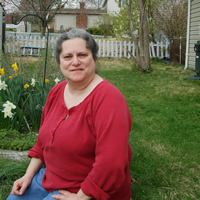Blessings, Darlings!
Over the past few days I've been thinking about marriage. Over the years I've watched couples unite and part, and I'm watching some total train wrecks on Twitter (I just unfollowed a second one of them). Mostly I'm thinking about the role of clergy in performing the ceremony, and clergy responsibility to help identify potential problems.
The chubby hubby and I got married back in 1980. The rabbi gave us a tiny bit of premarital counseling, pretty much only asking how we'd work on religious differences (I was still nominally Jewish at the time while CH is Christian). Like - how would we raise the children. That's ALL I remember, but it was thirty years ago!
On the other hand there was a woman I knew online who had a whole intense list of activities she demanded the couple do before she'd do the ceremony. Combine finances for the year before, train a puppy together, paper a small washroom together, etc.
Being me, and (obviously) into social media, I took the issue to Twitter. Got a lot of interesting issues brought up there.
Personal or Group/Tribal/Societal?
First question - is marriage, as an institution, more about individual/couple's spiritual development, or is it more about things that are 'for the good of the tribe'? Certainly, if the couple is involving clergy, they are taking vows before the Gods.... or are they?
In today's paganism, most folks see every individual as a priest or priestess, able to have their own relationship with the High Ones. Most don't see clergy needed for issues of personal spiritual development (altho' most agree that in some situations they can be helpful). Personal spirituality is, in fact, seen as the individual's responsibility, not the responsibility of clergy/HP's.
Involving clergy in a handfasting, not to mention family and invited guests, says to me that the rite is not about a path of personal spirituality, but of tribal status. Thus, it's ultimately about the good of the tribe.
The Good of the Tribe, Then
So, what about it was for 'the good of the Tribe'?
Back in the day, I think it's obvious that much of it was about fertility. Go forth and multiply, make our tribe stronger in numbers so we have workers/fighters/etc. In the ancient Irish Brehon laws there were something like 17 different types of marriage, but the bulk of the legalities, as I understand it, were about inheritance rights of the children that resulted from them.
Another aspect was building ties between tribes/clans. Marriages between other tribes and clans was seen as a good way to 'invest' and solidify good relationships, prove goodwill, etc. The ties broadened networks that could be called on in times of trouble, and were hoped to make it less likely that there would be wars between connected tribes/clans.
The Good of the Tribe, Now
This is rather more nebulous.
Yes, it still is a public rite of initiation/change of status in the community.
But what about marriage is 'for the good of the tribe'? We all know the 'Defense of Marriage' folks have their view, which I think is self-contradictory, and, since most pagan clergy do gay and lesbian handfastings, not applicable.
Breeding more little pagans isn't necessarily what is needed, both because the earth is past carrying capacity and because most new pagans convert from other religions. We may brag about our growing numbers, but we're not really called to make converts of the world. And certainly lots of folks don't concern themselves with getting handfasted or married before having children.
What's left, it seems to me, is clan relations. Two families intertwining members. If it works, it strengthens the community, even if it works for only a while then ends with respect.. If it ends acrimoniously, it is toxic for the community. And in that being toxic for the community, the
So What's the Role of Clergy?
They help the community. In this case, I'd say that they need to do reasonable premarital counseling to help them screen out couples that are not 'marriage material'. Too immature, too many issues, whatever. Ask questions, devised screening tests, refer couples or individuals not ready for marriage or too toxic to be married to options for solving the pre-existing issues. Just saying 'no' to couples where there is deemed to be too likely a toxic ending, when it can be quantified/shown by screening, etc.
A pro-active clergy.
What say ye?
Monday, September 20, 2010
Subscribe to:
Post Comments (Atom)

No comments:
Post a Comment